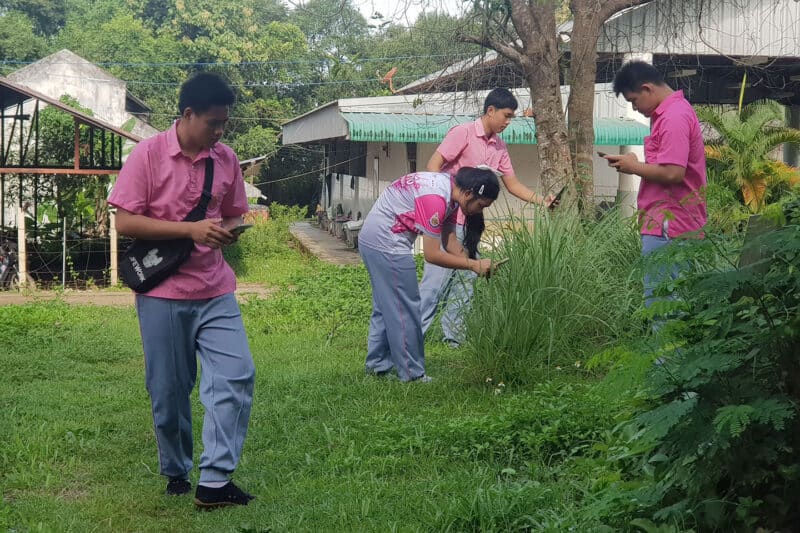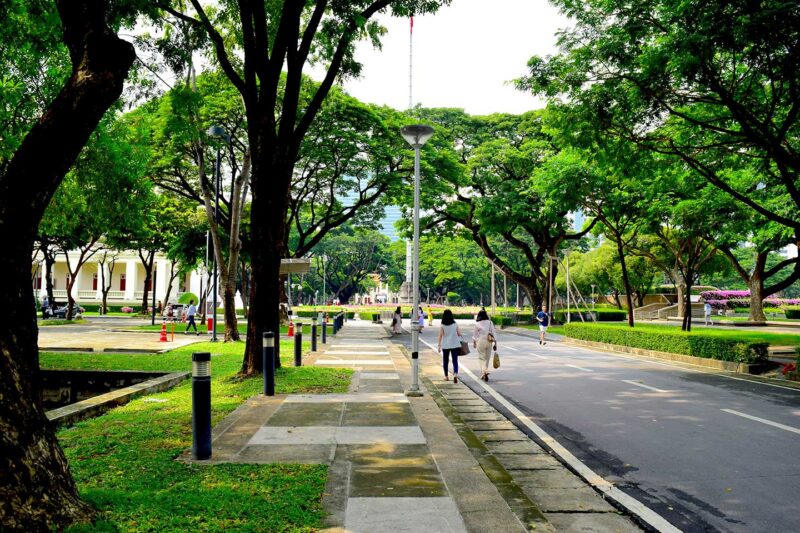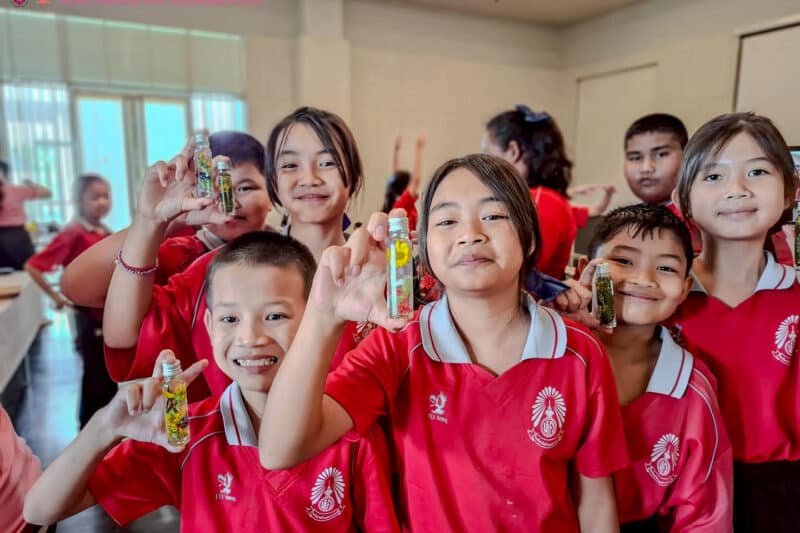Chula Spearheading Civic Engagement 4.0 “Co-Designing Resilient Global Communities”
The virtual conference “Co-Designing Resilient Global Communities” held on July 23, 2021, strengthened Chulalongkorn University’s local, regional, and global engagement and partnerships toward achieving the SDGs. Academics, CSOs (civil society organizations), practitioners, students, and others were invited to co-learn and co-create knowledge and wisdom during the virtual conference so that we can move forward together in this time of uncertainty.
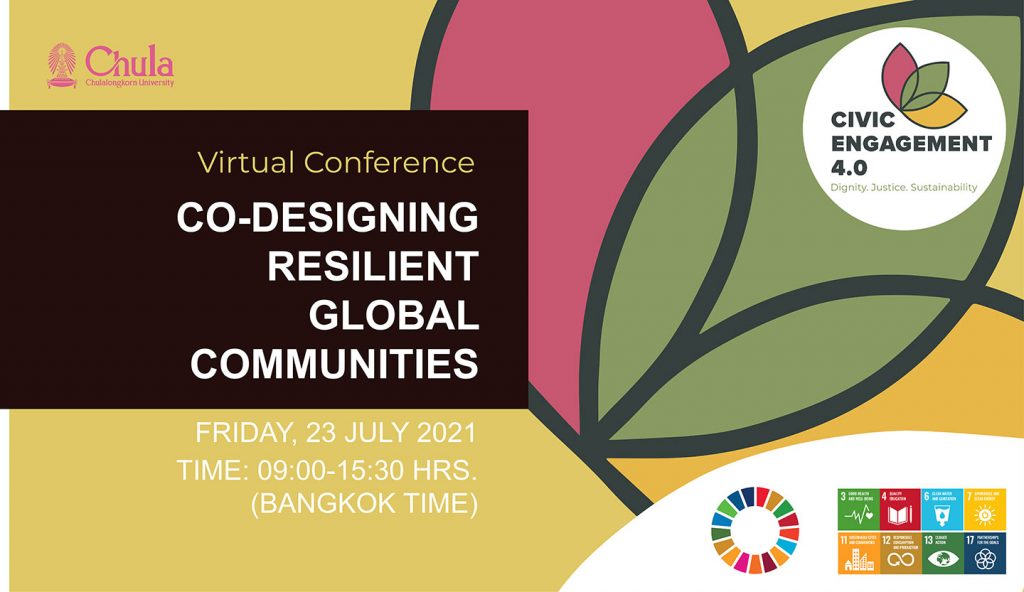
Civic Engagement 4.0 (CE 4.0) is a multi-stakeholder platform that Chulalongkorn University co-established with international partners in 2019 to promote dialogue and action toward creating a sustainable and just ASEAN society—a society that respects human dignity for everyone everywhere. CE 4.0 is a response to the Industrial Revolution 4.0 in that it attempts to deepen our understanding and discussion of technological innovations. Such innovations, and their implications, are profoundly affecting and shaping our society.
The virtual conference “Co-Designing Resilient Global Communities” held on July 23, 2021, strengthened Chulalongkorn University’s local, regional, and global engagement and partnerships toward achieving the SDGs. Academics, CSOs (civil society organizations), practitioners, students, and others were invited to co-learn and co-create knowledge and wisdom during the virtual conference so that we can move forward together in this time of uncertainty.
In his opening remarks, Professor Dr. Bundhit Eua-arporn, President of Chulalongkorn University, situated CE 4.0 in the context of the university’s overarching mission to “serve the public” and emphasized that “Civic engagement and dialogue are indispensable tools in spurring innovation.” He went on to say, “With our continued efforts in partnership, I am confident we can inspire new action and policy innovation to transform our society.”
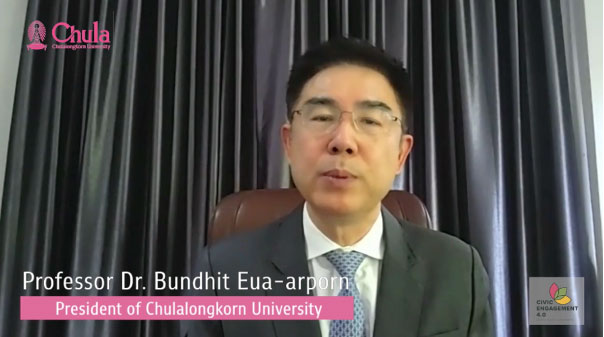
Two guest speakers expressed grave concerns about current global challenges of unprecedented scale and severity, from health threats to socio-economic, political, environmental, and spiritual crises, thus demonstrating that civic engagement is more needed than ever.
Ms. Gita Sabharwal, UN Resident Coordinator in Thailand, reminded us that “civil society, in a very real sense, is us, our friends and family, colleagues and neighbors,” and noted that our society is experiencing multi-dimensional risks and hardships. Ms. Sabharwal stressed that “this confers a responsibility to work together to build resilience, and it also informs the most effective responses to the evolving and interconnected challenges we face.” She therefore proposes an annual dialogue between civil society and the UN to strengthen strategic partnership.
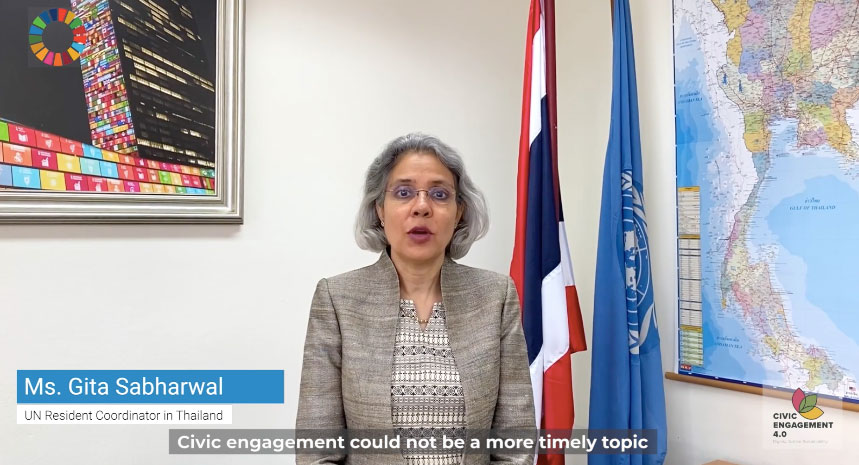
As a leading philanthropist who has worked closely with local communities, Mme. Erna Witoelar, Former UN Special Ambassador for Millennium Development Goals (MDGs) in Asia Pacific, drew upon her years of experience when she declared, “I believe that we must always start from the local level, which is where the strength of the people on the ground is rooted.” Mme. Witoelar asserted, “It is important to deepen engagement. With whatever one is doing, there are many roads, many potential partners.” She reminded participants that transformational acts need to be born and nurtured from the ground.
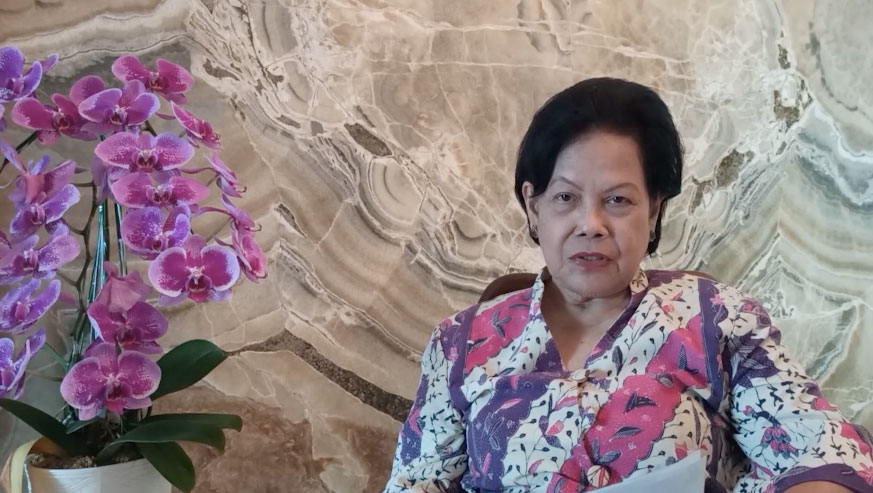
These remarks were followed by a launch of the book Civic Engagement in Asia: Lessons from Transformative Learning in the Quest for a Sustainable Society. The 24-chapter publication showcases a wide spectrum of civic engagement practices, encompassing community empowerment, policy advocacy, and policy engagement in Southeast Asia and beyond. Most of these practices were originally presented at a 2017 regional workshop in Yogyakarta, Indonesia, which marked the beginning of the processes that resulted in the CE 4.0 platform.
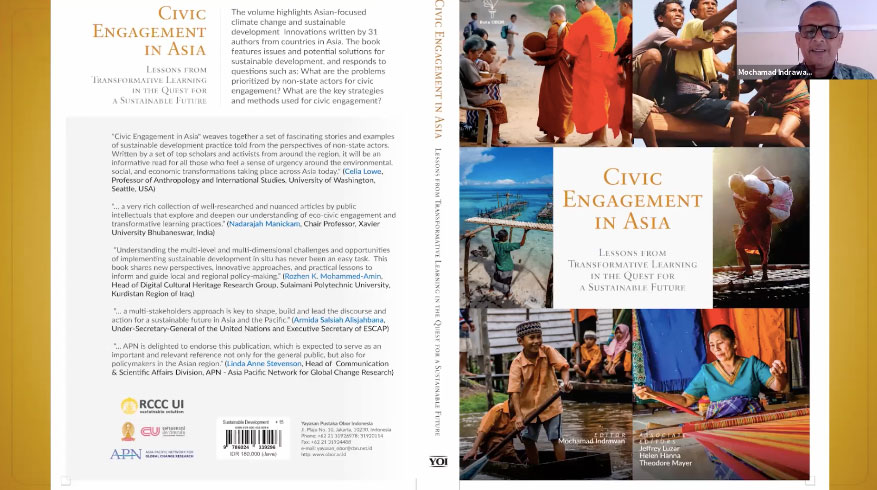
The second part of the conference featured two interactive panels. The first focused on the climate crisis and justice, while the second focused on transformative learning and education. Both panels discussed urgent topics and envisioned resilient societies in our future. Eight panelists were invited from ASEAN and beyond to share their experiences and lead discussions.
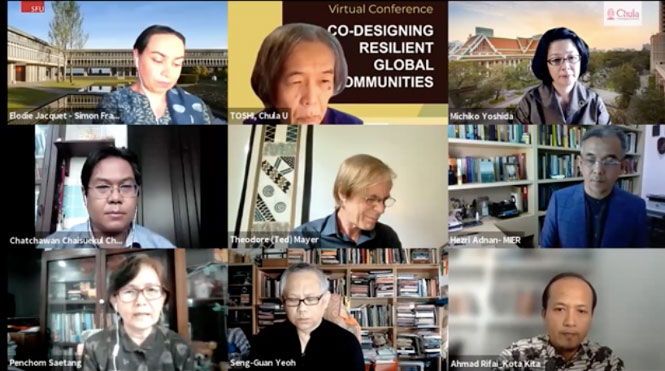
While discussing ideas to deal with “silo effects” during the climate panel, Dr. Hezri Adnan, Executive Director of the Malaysian Institute of Economic Research (MIER), one of the panelists, suggested, “We need to bring together different knowledge cultures and different specializations [to tap] the dynamism of the private sector, [though] this is perhaps where some civil society players might not be too comfortable.” One participant proposed from the floor that we should “not always frame women and youth as marginalized vulnerable communities, but also as those with a lot of profound knowledge and agency,” and advocated shifting focus to overcoming structural power dynamics.
During the second panel on transformational learning and education, panelist Dr. Susan Vize, Regional Adviser for Social and Human Sciences in Asia and the Pacific of UNESCO Bangkok, drew upon her experiences with a youth training program to emphasize the significance of building skills in collecting and utilizing empirical evidence. She noted, “If [youth] really want decision makers to listen to their advocacy messages that they want to get through, having a strong evidence base is a really good strategy for doing that.” A third-year university student in the audience, who runs an international policy initiative for young ASEAN leaders herself, emphasized that “youth need to feel convinced that their voices can be heard” and that if youth focus on civic engagement activity, they can indeed make real changes in a society.
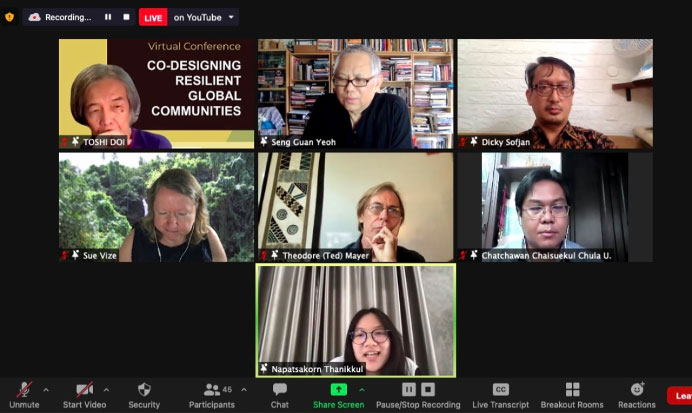
The entire conference was open to the public. It was live-streamed on social network services.* It provided a space to express and exchange a wide range of experiences, views, ideas, and aspirations across national boundaries, sectors, genders, and generations, thus serving as an important means to invigorate civic engagement toward co-designing resilient global communities with justice, dignity, and sustainability.
In closing remarks, Professor Emeritus Surichai Wun’Gaeo, Director of the Center for Peace and Conflict Studies of Chulalongkorn University, reiterated the role of universities in CE 4.0. He said, “A university, while co-learning with the people who are in action outside the campus, needs to play a part to create a more meaningful connectedness, not only in a mechanical, digital sense, but also in a human sense in the world that demands our compassion and humanity to respond to issues that go beyond our own specific contexts.” Professor Surichai stressed that a higher education institution such as Chulalongkorn University “needs to be a new adaptive possibility for regional and global civic engagement.”
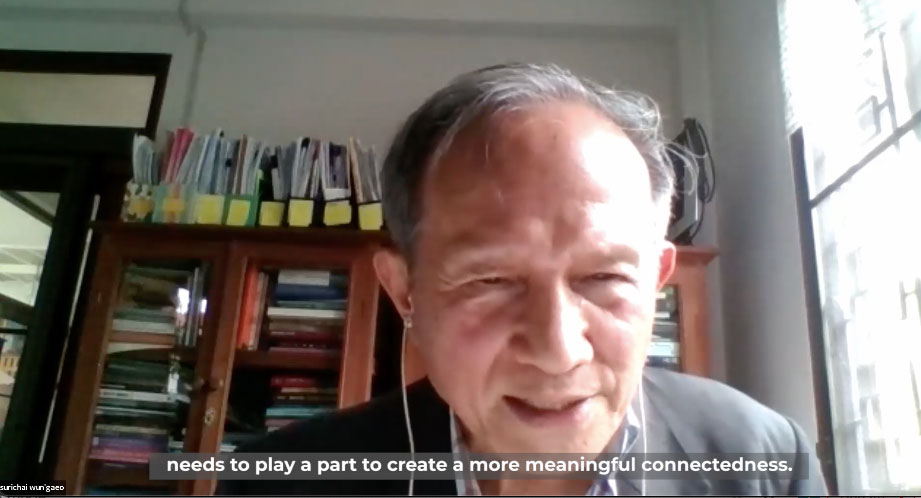
#CivicEngagement #GlobalEngagement #GlobalCitizenship
BY
Office of International Affairs, Chulalongkorn University
Media coverage:
- https://www.youtube.com/watch?v=0jTignlOkfc&t=217s
- https://thailand.un.org/en/137386-remarks-resident-coordinator-thailand-during-virtual-conference-civic-engagement-40-dignity
- https://twitter.com/SabharwalGita/status/1418522626599882756
- https://www.mongabay.co.id/2021/03/09/masa-depan-berkelanjutan-di-asia-pasca-covid-19-berkaca-dari-pengalaman-aktivis-lokal/
- https://www.apn-gcr.org/news/civic-engagement-in-asia-book-launch-held-in-indonesia/
- http://www.sustainability.chula.ac.th/report/504/
Related SDGs
Others

